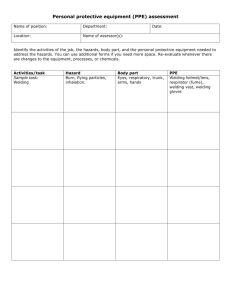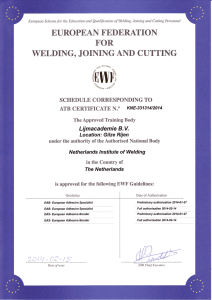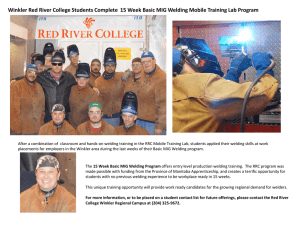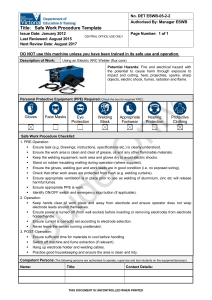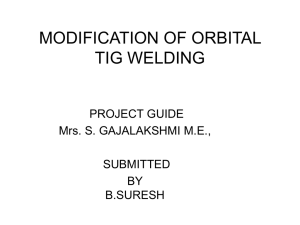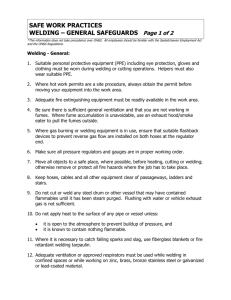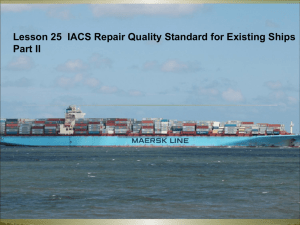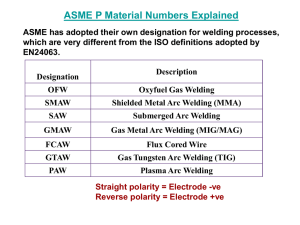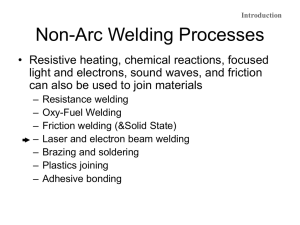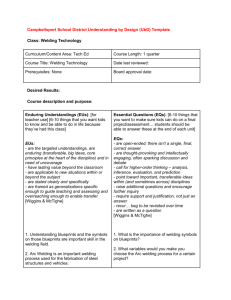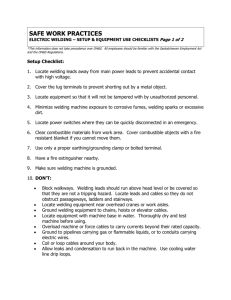Non-Arc Welding Processes
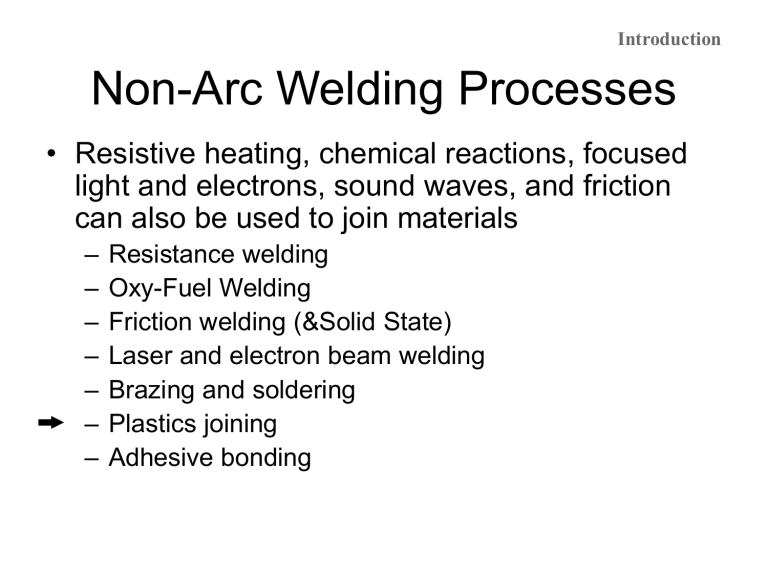
Introduction
Non-Arc Welding Processes
• Resistive heating, chemical reactions, focused light and electrons, sound waves, and friction can also be used to join materials
– Resistance welding
– Oxy-Fuel Welding
– Friction welding (&Solid State)
– Laser and electron beam welding
– Brazing and soldering
– Plastics joining
– Adhesive bonding
Welding of Plastics
Joining Plastics
• Polymer - a single building block (mer) is repeated to form a long chain molecule
– Thermoplastic polymers soften when heated, harden when cooled
• 2-liter bottles
– Thermosetting polymers don’t soften when heated
• Car tires, caulking compound
H
H
(Poly)ethylene
C=C
H
H add H
2
O
2
···
H H
-C-C-
H H
···
Hot Plate, Hot Gas, Infrared
• Advantages
– Provide strong joints
– Reliable
– Used on difficult to join plastics
• Limitations
– Slow
– Limited temperature range
0.1.1.2.5.T23.95.12
Welding of Plastics
Hot Plate, Infrared Welding
Hot plate welding
Hot Gas Welding
• Thermoplastics
(hotmelts)
– Adhesive is heated until it softens, then hardens on cooling
• Hot gas softens filler and base material
• Filler is pulled or fed into the joint
Welding of Plastics
Vibration
• Advantages
– Speed
– Used on many materials
• Limitations
– Size
– Requires fixturing
– Equipment costly
0.1.1.2.5.T24.95.12
Ultrasonic
• Advantages
– Fast
– Can spot or seam weld
• Limitations
– Equipment complex, many variables
– Only use on small parts
– Cannot weld all plastics
0.1.1.2.5.T25.95.12
